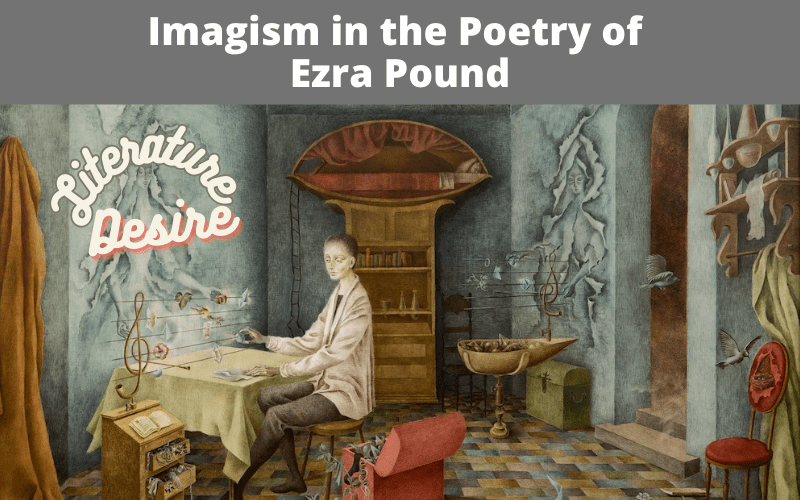Imagism, a prominent poetic movement of the early 20th century, revolutionized the way poets approached language and imagery. At the forefront of this movement stood Ezra Pound, an American poet, and critic who played a pivotal role in shaping Imagism as a distinct artistic style. Pound’s poetry embodied the principles of Imagism, employing precise language and vivid imagery to create evocative and impactful verses.
Imagism in the Poetry of Ezra Pound
Pound’s Early Influences
To understand Pound’s affiliation with Imagism, we must delve into his early influences. Ezra Pound was deeply intrigued by Japanese and Chinese poetry, particularly the classical works of Li Bai and Du Fu. These poetic traditions emphasized conciseness, the economy of language, and the direct treatment of subjects, all of which would greatly influence Pound’s own poetic style.
Advertisement
The Principles of Imagism
Imagism, as formulated by Pound and his contemporaries, sought to establish a new approach to poetry. It emphasized the use of clear and concrete imagery, avoiding abstract and superfluous language. Pound advocated for precision and economy of words, aiming to capture the essence of a subject with minimalistic yet evocative verses.
Advertisement
Pound’s Poetry and Imagist Characteristics
One of Pound’s most celebrated poems, “In a Station of the Metro,” epitomizes the tenets of Imagism.
Advertisement
With just fourteen words, Pound paints a vivid picture of a bustling subway station, utilizing precise imagery and condensed language. This poem exemplifies Pound’s ability to capture a fleeting moment and evoke powerful emotions through carefully chosen words.
Advertisement
Throughout his body of work, Pound consistently employed Imagist characteristics. His poetry brims with vibrant sensory details, often focusing on specific objects and scenes.
By stripping away unnecessary words and focusing on the core images, Pound created a sense of clarity and intensity in his verses.
Pound’s Influence on Modern Poetry
Pound’s role in the development of modern poetry cannot be overstated. His advocacy for precise language and concrete imagery influenced subsequent poetic movements, such as the Objectivists and the Beat Generation.
Pound’s impact extended to notable poets like T.S. Eliot and William Carlos Williams, who were inspired by his innovative approach to poetic form and style.
Criticisms and Controversies
While Imagism garnered acclaim, it also faced criticism. Some argued that the movement’s emphasis on vivid imagery limited the expressive potential of poetry.
However, it is essential to consider the historical context and intentions behind Imagism, which sought to break free from the flowery and verbose language of the Victorian era.
Moreover, Pound’s association with Imagism is not without controversy. His later years were marred by political views that drew criticism and overshadowed his literary contributions. Separating Pound’s work from his personal beliefs remains an ongoing debate among scholars and readers.
Pound’s Legacy
Despite the controversies surrounding Pound, his legacy as a poetic innovator endures. His contributions to poetic form, style, and the evolution of modern literature remain significant.
Pound’s emphasis on imagery, precision, and economy of language continues to inspire contemporary poets, ensuring his place in the annals of 20th-century literature.
Conclusion:
Imagism, spearheaded by Ezra Pound, revolutionized poetry by prioritizing vivid imagery, precise language, and economy of words.
Pound’s poetry exemplified the principles of Imagism, allowing readers to experience profound emotions through concise and evocative verses.
His influence on modern poetry remains palpable, leaving an indelible mark on the literary landscape.
Frequently Asked Questions
No, Ezra Pound played a significant role in shaping Imagism, but it was a collaborative effort among several poets, including H.D., Richard Aldington, and F.S. Flint.
Imagism laid the foundation for subsequent poetic movements, such as Objectivism and the Beat Generation, and influenced notable poets like T.S. Eliot and William Carlos Williams.
Yes, alongside Pound, other notable poets associated with Imagism included Amy Lowell, D.H. Lawrence, and Marianne Moore.
Imagism emphasized precise and vivid language, focusing on concrete imagery and avoiding unnecessary abstractions. It sought to convey meaning through the direct treatment of subjects.
Pound’s controversial political views, especially his support for Fascism, have raised ethical questions regarding his work. It remains a topic of debate among scholars and readers when evaluating his contributions to literature.

